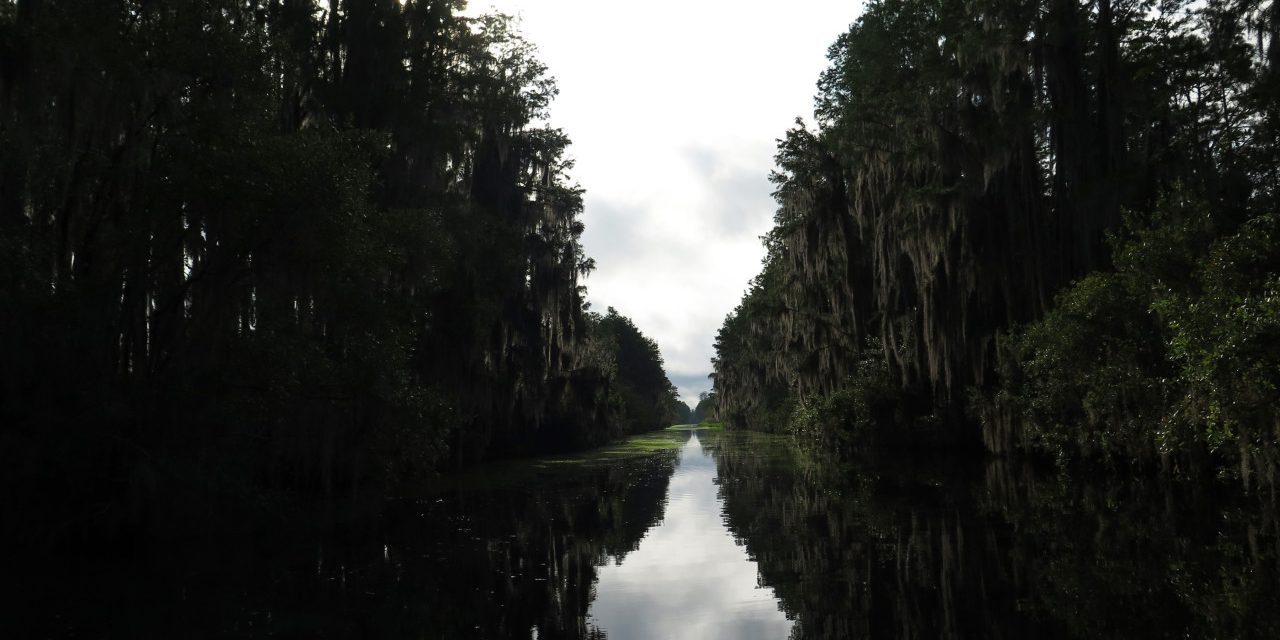State Has Questions About Mining Plan Near Okefenokee

The titanium dioxide mine has support from Charlton County officials interested in the possibility of jobs, but environmentalists are pushing back, concerned about effects to the Okefenokee Swamp.
Updated at 4:30 p.m. Thursday
The state of Georgia is asking for more information about a controversial mine proposed near the Okefenokee Swamp.
The titanium dioxide mine has support from Charlton County officials interested in the possibility of jobs, but environmentalists are pushing back, concerned about effects to the swamp.
Last year, the approval process appeared to be getting easier for the mine. The U.S. Army Corps of Engineers, following a Trump administration rule change, decided it did not have any oversight over the project. That meant a lengthy federal environmental impact study wouldn’t happen.
But the mine does still need permits from the state.
This month, the Georgia Environmental Protection Division (EPD) sent a list of comments to Twin Pines Minerals, the company seeking to mine, questioning some of the information the company had supplied, asking for more research on the hydrology of the area and for more details on how the company would restore wetlands affected by the mine.
“I think EPD is asking Twin Pines to address some real fundamental problems in their modeling,” said Bill Sapp, a senior attorney at the Southern Environmental Law Center. “I think that’s terrific, and I hope that as Twin Pines provides some of this data, the EPD will continue to be rigorous in its evaluation.”
Sapp said the state Environmental Protection Division has been able, in the past, to rely on federal agencies like the Corps for the complex hydrologic analysis a project like this requires.
“The groundwater situation is key to this whole problem, and it takes a lot of resources to dig in to evaluate that issue. And the Corps has the resources,” he said.
After the Trump administration narrowed the purview of the Clean Water Act from an Obama administration interpretation of the law, the Corps found that it did not have jurisdiction over any of the waterways in the area Twin Pines is proposing to mine.
The Southern Environmental Law Center is one of several groups challenging that Clean Water Act rule change in court.
Steve Ingle, president of Twin Pines, said he’s reviewing the EPD’s comments.
“This is a normal and expected part of the process that will help assure our project is safe and protective of the environment,” Ingle said in a written statement. “We will proceed with addressing each point, but it is too early to determine how long it may take.”
Gov. Brian Kemp, who visited Folkston, Georgia, on Thursday, declined to take a stand on the project.
“I’m going to let the process play out,” Kemp said of the EPD. “We’ll see what they come up with in their review.”
Twin Pines had initially proposed a much larger mine. The company is now pitching what it’s calling a demonstration project with a smaller footprint, about 3 miles from the Okefenokee National Wildlife Refuge.
Christian Hunt, a Southeast representative for the conservation group Defenders of Wildlife, said it’s great to see the state taking the proposed project seriously, but he’s worried about whether the full effects of mining near the swamp will be studied.
“We believe they should analyze the cumulative impacts to account for not only the damages that would befall the Okefenokee from this first demonstration mine, but a larger operation, which would eventually come within a stone’s throw of the swamp,” he said.
Hunt said the state’s study also doesn’t include, at this point, a look at other sorts of impacts, such as how light or noise from the mine would affect recreation in the Okefenokee.
And there’s a possibility that other companies could follow, if Twin Pines is successful, said environmental attorney Josh Marks.
“This would be opening Pandora’s box,” said Marks, who fought a previous proposal to mine near the Okefenokee in the 1990s. “We know that there are other companies that operate in southeast Georgia that are looking very closely at what’s happening with Twin Pines.”
The state is collecting public comments via email, at TwinPines.Comment@dnr.ga.gov and will hold a public meeting on the project, though that’s not yet scheduled.
Emma Hurt contributed to this report







